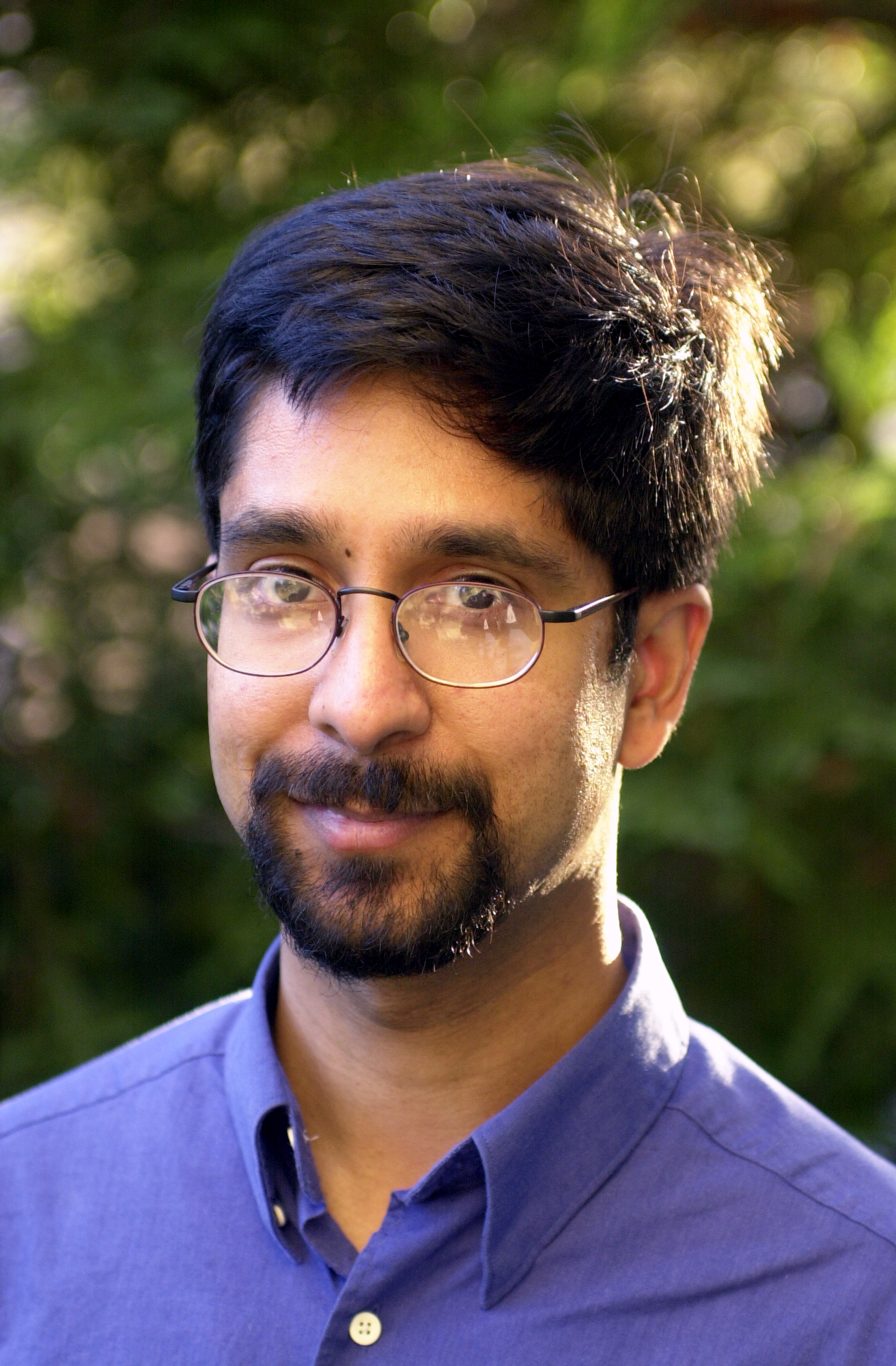Keynote Speakers: Vijay Pande and Ellen Wright Clayton

Keynote Speakers: Vijay Pande and Ellen Wright Clayton |
PSB 2011

|
 |
Vijay Pande Associate Professor of Chemistry Stanford University |
Abstract:
Over the last decade, there has been tremendous progress in our ability to simulate biophysical phenomena, such as protein folding, in full chemical detail. With the latest technology utilizing a combination of Molecular Dynamics simulation, Bayesian inference, and worldwide distributed computing, one can directly simulate in chemical detail, many complex, experimentally systems on lengthscales and timescales previously unimaginable. The challenge for the next decade will be applying the insight and technology learned to challenging biological and biomedical problems. In particular, I will highlight the growing need to combine bioinformatics, physical simulation, and cheminformatics to tackle the grand challenges of the future, such as tackling protein misfolding disease, new ways to accelerate drug design, and new insight into biological function.
Biography:
Prof. Pande's current research centers on the development and application of novel grid computing simulation techniques to address problems in chemical biology. In particular, he has pioneered novel distributed computing methodology to break fundamental barriers in the simulation of kinetics and thermodynamics of proteins and nucleic acids. As director of the Folding@Home project (http://folding.stanford.edu), Prof. Pande has, for the first time, directly simulated protein folding dynamics with quantitative comparisons with experiment, often considered a "holy grail" of computational biology. His current research also includes novel simulation methods for high accuracy drug binding affinity calculations, protein misfolding, and related diseases such as Alzheimer's Disease.
Prof. Pande received a BA in Physics from Princeton University in 1992. There, he was first introduced to biophysical questions, especially in his undergraduate thesis research with Prof. Philip Anderson, a Nobel Laureate in physics. In 1995, he received his PhD in physics from MIT, studying as a NSF Fellow under Profs. Toyoichi Tanaka and Alexander Grosberg. At MIT, Prof. Pande's research centered on statistical mechanical models of protein folding and design, suggesting novel ways to design protein sequences to have the desired stability and folding properties. As a Miller Fellow working with Prof. Daniel Rokhsar at UC Berkeley, Prof. Pande extended this methodology to examine atomistic protein models, laying the foundations for his later work at Stanford University.
Prof. Pande has won numerous awards, including the Irving Sigal Young Investigator Award from the Protein Society (2006), the MIT Indus Global Technovator's Award (2004), a Henry and Camile Dreyfus Teacher-Scholar award (2003), being named to MIT's TR100 (2002), and named a Frederick E. Terman Fellow (2002). Prof. Pande is currently an Associate Professor of Chemistry and (by courtesy) of Structural Biology and of Computer Science at Stanford University.
 |
Ellen Wright Clayton Rosalind E. Franklin Professor of Genetics and Health Policy Professor of Law Professor of Pediatrics Vanderbilt University |
Abstract:
Francis Collins in his most recent book predicted that in the near future whole genome sequencing would be done at birth. Simply putting all this information into patients' medical records, however, would at best overwhelm the health care delivery system. In this talk, I will discuss the ethical and policy challenges that will be posed by too aggressive use of this technology for patients, their families, clinicians, the health care delivery, and society at large. I will then suggest some of the steps that will be needed to control this tidal wave.
Biography:
Ellen Wright Clayton is an internationally respected leader in the field of law and genetics who holds appointments in both the law and medical schools at Vanderbilt, where she also directs the Center for Biomedical Ethics and Society. She has published two books and more than 80 scholarly articles and chapters in medical journals, interdisciplinary journals and law journals on the intersection of law, medicine and public health. In addition, she has collaborated with faculty and students throughout Vanderbilt and in many institutions around the country and the world on interdisciplinary research projects, and helped to develop policy statements for numerous national and international organizations. An active participant in policy debates, she has advised the National Institutes of Health as well as other federal and international bodies on an array of topics ranging from children's health to the ethical conduct of research involving human subjects. Professor Clayton had worked on a number of projects for the Institute of Medicine, of which she is a member of its National Advisory Council, and is currently chairing an IOM study evaluating vaccine safety. She is also coordinating the Consent and Community Consultation working group of a five-institution consortium exploring the use of electronic medical records for genome-wide association studies.
| Back to the main PSB page | Updated: September 14, 2010 |